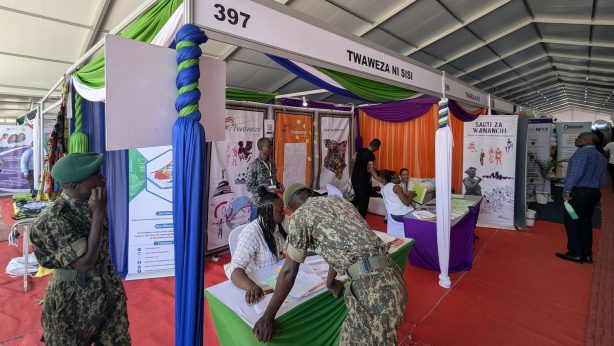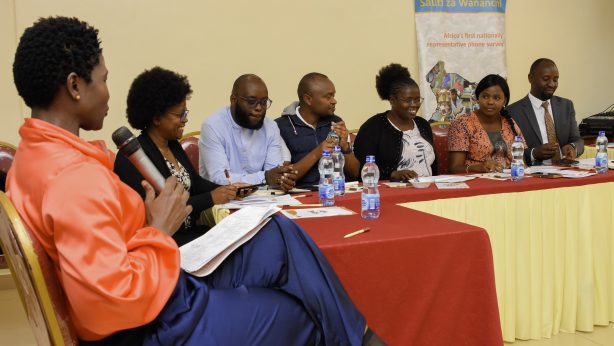Anna Bwana’s first month at Twaweza
Starting something new is never easy, and Anna Bwana will be the first to tell you that. When she walked into Twaweza on her first day as Executive Director, she carried a mixture of excitement and nerves, like anyone would. But what she didn’t expect, she says, was just how warmly she would be welcomed.
“There was so much support,” she told me when we sat down to talk. “Not just from the Tanzania team, but also from our colleagues in Kenya and Uganda, and from the many partners and allies who believe in this work.”
It’s only been a month, but the kindness, the encouragement, and the open doors have shaped her early days. And it’s made her hopeful.
But as Anna settles into her new role, she’s also aware of the bigger picture of the moment we’re all living through, in the region and globally.
Listening to young people, not managing them
One of the first things Anna pointed out was how much the space occupied by young people has shifted not just in Tanzania, but across East Africa. And her call is simple: we need to respect that space.
“That means really listening,” she says, “and building meaningful, empathetic relationships. Less fear, more understanding. Less suspicion, more trust.”
In her view, young people are not a group to be managed or explained away. They are citizens. With real concerns, yes, but also with real dreams. And as civil society, we must respond with the seriousness that it deserves. More importantly, Anna urges, governments must engage young people not just as a demographic, but as a force for democracy.
Don’t look away: Staying Present in a Time of Crisis.
Zooming out, Anna shared her reflections on the world at large — a world she describes as full of overlapping crises. It’s a hard moment, she admits. The temptation is to shut down. To focus inward. To shrink our worlds to what we can control.
“But then,” she asks gently, “what does that mean for solidarity? What happens to the collective action we so desperately need?”
Her concern is that civil society might begin to retreat at a time when the world needs us most. Instead, she challenges us to remain open, to continue building trust, to collaborate more boldly, and to invest in community-driven efforts that transcend borders.
“We can’t afford to give up on the principles that guide us,” she says. “Not now.”
What does the future hold?
It’s a question we all ask ourselves. I also asked Anna what she sees for Twaweza in five years.
She laughed softly. “It’s a hard question,” she admitted. “And I’m almost too scared to answer it after just a month in.”
But she did have a vision, one that feels grounded, yet hopeful.
She hopes we stay bold so that we make room for creativity, that we remain guided by the energy and passion that brought us here, and that we listen to the right voices, especially those that have been pushed aside or spoken over. And that we tackle emerging issues with courage, compassion and curiosity.
“There will be moments when we get it wrong,” she says. “But we need to remember that what we’re doing matters. Our presence matters. Our work is long-term. And it’s about shaping the future, not just reacting to the now.”
As I listened to Anna speak, I was reminded of something Twaweza has always believed: real change starts with people. It grows in conversations, in listening, in showing up, even when it’s hard.
And with Anna at the top, there’s a renewed sense that we’re not just responding to change, we’re helping shape it. Together.


